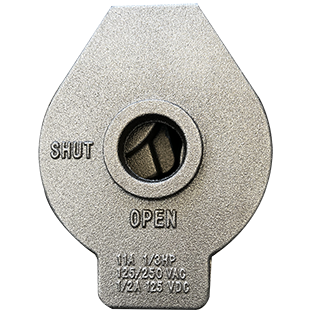- Afrikaans
- Albanian
- Amharic
- Arabic
- Armenian
- Azerbaijani
- Basque
- Belarusian
- Bengali
- Bosnian
- Bulgarian
- Catalan
- Cebuano
- China
- China (Taiwan)
- Corsican
- Croatian
- Czech
- Danish
- Dutch
- English
- Esperanto
- Estonian
- Finnish
- French
- Frisian
- Galician
- Georgian
- German
- Greek
- Gujarati
- Haitian Creole
- hausa
- hawaiian
- Hebrew
- Hindi
- Miao
- Hungarian
- Icelandic
- igbo
- Indonesian
- irish
- Italian
- Japanese
- Javanese
- Kannada
- kazakh
- Khmer
- Rwandese
- Korean
- Kurdish
- Kyrgyz
- Lao
- Latin
- Latvian
- Lithuanian
- Luxembourgish
- Macedonian
- Malgashi
- Malay
- Malayalam
- Maltese
- Maori
- Marathi
- Mongolian
- Myanmar
- Nepali
- Norwegian
- Norwegian
- Occitan
- Pashto
- Persian
- Polish
- Portuguese
- Punjabi
- Romanian
- Russian
- Samoan
- Scottish Gaelic
- Serbian
- Sesotho
- Shona
- Sindhi
- Sinhala
- Slovak
- Slovenian
- Somali
- Spanish
- Sundanese
- Swahili
- Swedish
- Tagalog
- Tajik
- Tamil
- Tatar
- Telugu
- Thai
- Turkish
- Turkmen
- Ukrainian
- Urdu
- Uighur
- Uzbek
- Vietnamese
- Welsh
- Bantu
- Yiddish
- Yoruba
- Zulu
Nov . 20, 2024 16:00 Back to list
small iron castings
Small Iron Castings An Overview of Their Importance and Applications
Small iron castings play a critical role in various industries due to their unique properties and versatility. Cast iron, which is made by melting iron and adding carbon, has been used for centuries for its excellent casting ability, mechanical properties, and durability. In this article, we will explore the various aspects of small iron castings, including their manufacturing processes, applications, and advantages.
Manufacturing Process
The production of small iron castings involves several steps, beginning with the preparation of the molten iron. The primary method for creating small iron castings is sand casting, where patterns, usually made from aluminum or wood, are used to form the mold. The process begins with creating a mold from a mixture of sand and a binding agent. After the mold is prepared, molten iron is poured into it and allowed to cool and solidify.
Once the castings have cooled, they are removed from the mold, and any excess material, such as flashing or gates, is trimmed away. The castings often undergo additional finishing processes, such as grinding or machining, to meet the required tolerances and surface finishes. Other manufacturing techniques include investment casting, die casting, and lost foam casting, each offering distinct advantages depending on the desired characteristics of the final product.
Applications
Small iron castings find applications in a wide range of industries, thanks to their robustness and adaptability. Here are some of the key sectors that utilize small iron castings
1. Automotive Industry Small iron castings are extensively used in automotive components, such as engine blocks, transmission cases, and brake components. Their ability to withstand high pressures and temperatures makes them ideal for critical automotive applications.
2. Construction and Heavy Machinery Cast iron is commonly found in construction equipment, including gears, housings, and structural components. Its durability helps ensure the longevity and reliability of machinery used in heavy-duty applications.
3. Household Products Small iron castings are also present in a variety of everyday products, such as cookware (e.g., cast iron skillets), plumbing fittings, and decorative items. The heat retention and even cooking properties of cast iron make it a preferred choice for cookware.
4. Agricultural Equipment In agriculture, small iron castings are used in various equipment and machinery, ensuring efficient operation in farming practices. Components such as plows, harrows, and other implements benefit from the strength of cast iron.
small iron castings

5. Industrial Applications Many industrial processes require reliable components, such as valves, pumps, and mechanical housings. Small iron castings are often employed in these applications due to their excellent wear resistance and ability to handle harsh environments.
Advantages of Small Iron Castings
The use of small iron castings offers several advantages that contribute to their popularity across different sectors
- Durability Cast iron is known for its exceptional durability and resistance to wear, making it suitable for demanding applications where long service life is a priority.
- Complex Shapes The casting process allows for the creation of complex geometries that would be difficult or cost-prohibitive to achieve with other manufacturing methods.
- Cost-Effectiveness Producing small iron castings through processes like sand casting is often more cost-effective compared to other manufacturing techniques, especially for low to medium production runs.
- High Wear Resistance Cast iron has inherently high abrasion strength, making it ideal for parts that experience significant wear over time.
- Excellent Machinability Despite its hardness, cast iron can be machined efficiently to achieve precise specifications, giving manufacturers flexibility in production.
Conclusion
Small iron castings are an invaluable asset to various industries, providing strength, durability, and versatility in applications ranging from automotive components to household goods. As advances in manufacturing technologies continue to evolve, the efficiency and capabilities of small iron casting processes are likely to improve further, solidifying their place in the future of manufacturing. Whether it’s in heavy machinery or everyday kitchenware, small iron castings will undoubtedly remain essential to our industrial landscape for years to come.
-
8mm Thin-Walled Cast Steel Manhole Cover Pallet Bottom Ring | Durable
NewsAug.04,2025
-
Premium Cast Iron Water Main Pipe: Durable, Corrosion-Resistant
NewsAug.03,2025
-
Durable Cast Iron Water Mains | AI-Optimized Systems
NewsAug.02,2025
-
High-Efficiency Propane Boiler for Baseboard Heat | Save Energy
NewsAug.01,2025
-
Premium Source Suppliers for Various Gray Iron Castings
NewsJul.31,2025
-
Durable Cast Iron Water Main Pipes | Long-Lasting
NewsJul.31,2025


